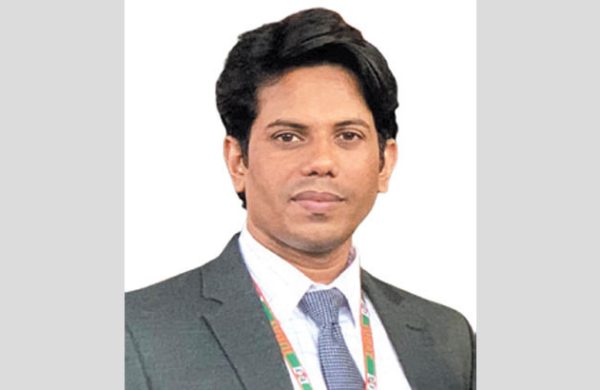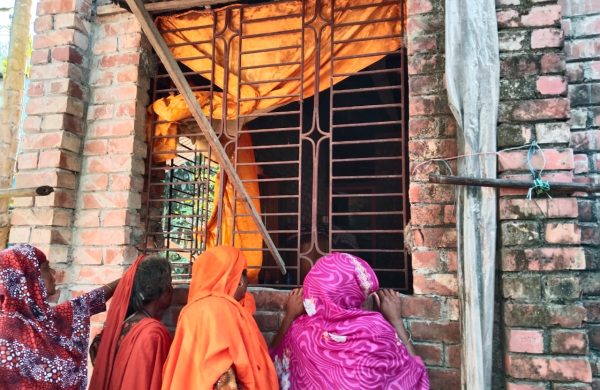The Albatross Round Our Neck
- Update Time : Monday, February 3, 2025

—Sikandar Ali—
Ever since the publication of Samuel Taylor Coleridge’s Rime of the Ancient Mariner, the albatross, a large sea-bird, has been a universally recognised symbol of errors, lapses and sins. The old sailor shot a harmless albatross for no reason and the dead albatross was hung around his neck by his mates as a mark of punishment. Until the Ancient Mariner repented for his thoughtless act, the carcass did not fall off and he was unable to feel relieved.
In real life, in private as well as in public, we sometimes find ourselves committed to wrong policies which we can neither repudiate for fear of losing face nor continue without detriment to our future. They torment our conscience, give us sleepless nights, but fear of censure and the risk of being considered inconsistent compel us to stick to them in a spirit of hopelessness and cynicism.
Repentance for past political mistakes is not easy; retreat from wrong policies — educational, financial and administrative — is even less easy. Consequently, month after month, even year after year, we tend to adhere to a course of action that turns out to be unwise. The albatross keeps hanging from our neck.
Just think of the abysmal depths to which our education system has fallen. Some policy makers in the government began to nurture the utopian vision that our education policy has reached such dazzling heights of brilliance that they decided to eliminate school examinations altogether. Students’ homework was reduced to cooking some food items at home for class teachers to have a real taste of it to assess performance. Children’s progress report cards were to show smiley symbols and angular shapes. It seemed to create confusion and panic among parents who feared that far from fostering creativity such type of education would only breed ignorance. They gathered to protest against it. The interim government still finds it difficult to tackle the issue adequately.
School textbooks have become more like experimental drafts than reliable sources of knowledge with their contents changing quite off and on. One year, a chapter on scientific reasoning disappears; the next, a historical figure is replaced by another. Curriculum planners, handpicked for the purpose, treat textbooks like scrapbooks — writing, deleting, rewriting and distorting at will. Classic poetry, essays and prose that once inspired critical thinking are now trimmed or outright erased to accommodate the sentiments of different groups who shout the loudest. Should this trend persist, a generation will grow up empty of critical reasoning and with unquestioning minds.
It seems Bangladesh has redefined the concept of higher education. You can perhaps buy and sell education like children’s toys. Some private universities operate in rented houses sometimes perched above bustling grocery stores or tucked away in the corners of a shopping mall. Who bothers about a sprawling campus when a few cramped rooms, a single shelf of outdated books, a white board and a flickering tube light can shape the future of a nation?
Again, one cannot help feeling baffled by the previous government’s decision to set up public universities in every district while existing universities do suffer from acute shortage of funds. The proliferation of such universities in remote areas with underqualified faculty and insufficient infrastructure has turned the whole scheme into a liability than an asset resulting in a sharp decline in standards. It is mentionable that twenty-one public universities are run in rented buildings. Many universities do not even have a library.
Consider the case of Rabindra University, Bangladesh. Established eight years ago, the university does not have its own campus yet, not even a building of its own. Both academic and administrative work are done in a women’s college and in a community centre. The students of the university over the last few months repeatedly blocked the Bogura-Nagarbari highway to voice their demand for creation of their own campus. Nothing whatsoever has happened until now. Needless to say, the condition of the more recently established universities is far worse; only likely to lead to a surge in unemployable graduates.
Consider the case of the seven-college issue as well. The fiasco concerning the affiliation of seven colleges with Dhaka university serves as a perfect metaphor for the way policy decisions are made in Bangladesh: create a problem, struggle with it for years and then “solve” it by making another problem. The situation has now reached the peak of absurdity. These seven colleges are now floating in a bureaucratic no-man’s-land.
As the crisis deepens and protests rage on, the interim government has all of a sudden decided to establish a brand new university named ‘July 36 University’ (proposed). Will the proposed university have actual classrooms, faculty and a functioning administrative system? Unclear. Or will it be another administrative body like the National University notorious for its incompetence? There is no point in renaming an existing problem and calling it a solution. One can only hope that by the time the university actually starts functioning – if it ever does – it will take valuable lessons from the past so that another cycle of tragicomic event isn’t repeated.
____________________________________
The writer is a faculty member of the Department of English, Shahjalal University of Science and Technology, Sylhet. He can be reached at [email protected]



















